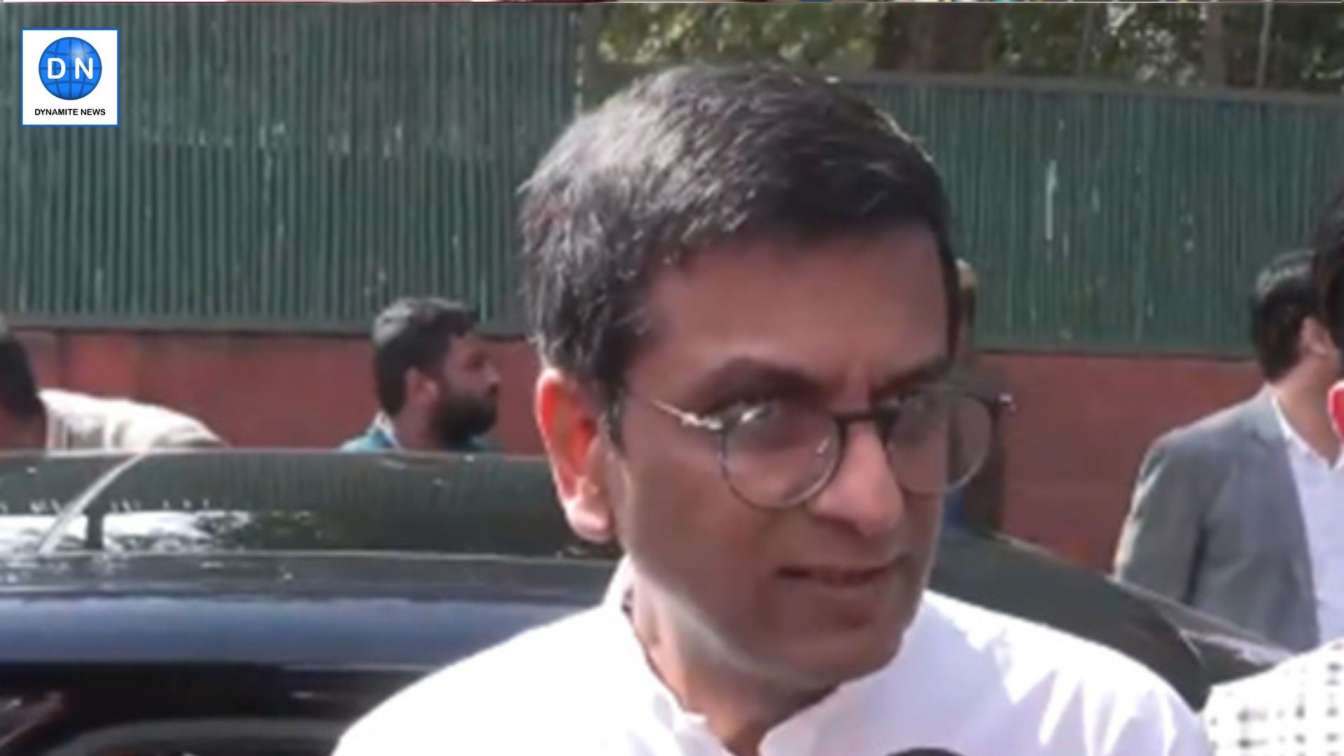Literature sheds light on gaps in law, humanises it: Former CJI Chandrachud
The former Chief Justice of India, DY Chandrachud, said that literature sheds light on the gaps in law and humanises it

New Delhi: The former Chief Justice of India, DY Chandrachud, said that literature sheds light on the gaps in law and humanises it.
He also highlighted the need to look beyond just the written letter of the law in order to have a better perspective of the law itself.
The former top judicial officer was speaking at the second edition of the Vidhi Utsav, the Festival of Law, Legal Literature & Luminaries, at the Constitution Club of India here.
As a keynote speaker on the inaugural day of the event, the former CJI emphasised the importance of reading literature.
"Literature, we may agree, humanises the law," the ex-CJI said.
The former judge cited various examples of authors and scholars, reading whose books had inspired him in his journey both as a lawyer and later as a judge.
Pertinently, he quoted Alan Paton, who, in one of his books, "Cry, The Beloved Country," has dealt with the Apartheid in racial South Africa.
This book, the former judge said, has had a big impact on how the law itself can be a perpetrator of injustice when you allow characteristics over which humans have no control to be used as a focal point for discrimination.
Also Read |
SC: Protesting farmers to meet committee chairperson today
he illustrated an example of how the law regarding persons with disabilities in India has evolved over time.
The new law defines disability not as a physical anomaly but as a social reality, emphasising the need to address societal barriers rather than just focusing on individuals' physical conditions, the former judge said.
Persons With Disabilities Act of 1995 adopted
"Persons With Disabilities Act of 1995 adopted a medical understanding of disabilities--persons with disabilities were defined as persons suffering from at least 40 per cent of any disability as certified by medical authority--the definition implied that the so-called 'suffering bodies of the people were what disabled them.
Over several litigations, civil society engagement and the rest, lawmakers eventually recognised that it was the society that disabled the person and that we could do better. The 2016 Act that deals with persons with disabilities did away with this medical narrative that fixated on people's bodies rather than society's deficiencies."
The former CJI cited another example to emphasise the need to look beyond the written letter of the law in order to improve legal frameworks.
He discussed how, in deciding the validity of the subclassification of Scheduled Castes (SCs) and Scheduled Tribes (STs) for the distribution of affirmative action, the Supreme Court had to take a deeper look beyond legal text.
Also Read |
SC refuses to entertain plea over alleged irregularities
He pointed out that while the written law embodies the principle of equality, a fundamentally unequal society requires more than a simplistic approach to treating everyone equally.
"The content of equality often transcends the written letter itself," he remarked.
He further explained, "Deciding upon the validity of the subclassification of STs and SCs for distributing affirmative action required us, on the bench of the Supreme Court, to have a deeper sociological, historical, and statistical understanding of the realities of our society."
The former judge stressed that this broader perspective is essential for clarity and fairness, noting that "granular data emerging from the grassroots must regularly inform the law to remain in sync with the changing world."
He concluded by reminding judges and legal professionals, "We as judges and readers of the law cannot afford to look away."
 Dynamite News
Dynamite News 